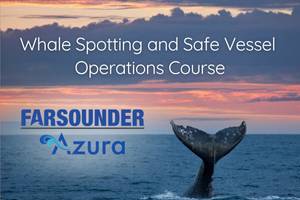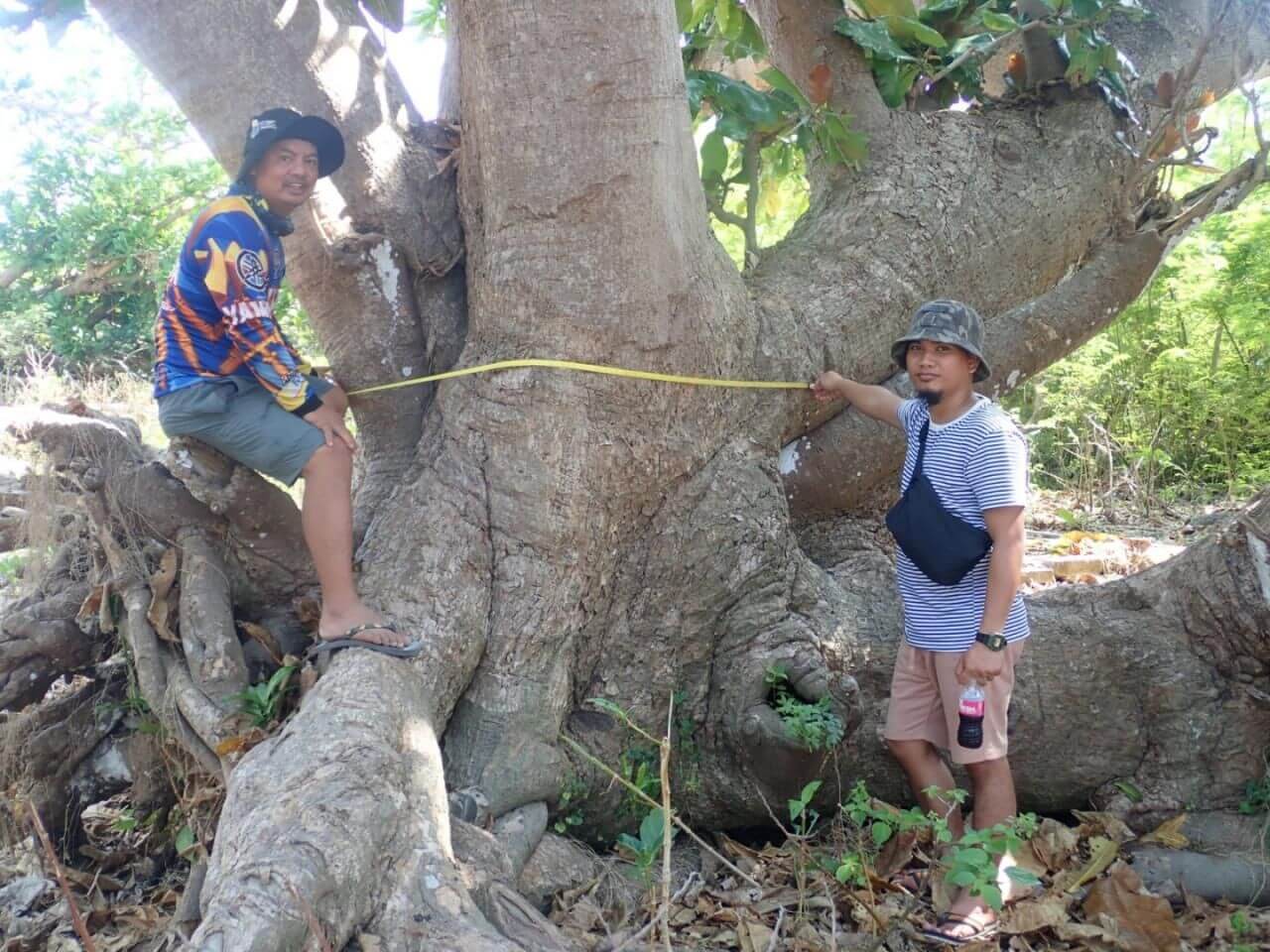Report on a New Maritime Initiative Supporting Sustainable Development Goals
Introduction: Advancing SDG 14 (Life Below Water) through Education
A new initiative has been launched to address critical marine conservation challenges, directly supporting the United Nations Sustainable Development Goals (SDGs). FarSounder, a leader in 3D forward-looking sonar technology, in collaboration with the environmental consulting firm Azura, has developed the “Whale Spotting and Safe Vessel Operations” course. This program is designed to mitigate the risk of vessel collisions with whales, a significant threat to marine biodiversity and a key concern under SDG 14 (Life Below Water). The course provides mariners with essential knowledge and practical skills to protect marine ecosystems and endangered species.
Core Objectives and Alignment with SDG Targets
The online training course is structured around several key learning objectives that align with specific SDG targets, promoting a holistic approach to marine stewardship.
- Enhancing Knowledge of Marine Ecosystems: The curriculum provides a comprehensive understanding of whale biology, identification techniques, and existing protection measures. This educational component directly supports SDG Target 14.2 (sustainably manage and protect marine and coastal ecosystems) by fostering awareness and respect for marine life among maritime professionals.
- Implementing Risk Reduction Strategies: Participants learn practical strategies for detecting whales and minimizing collision risks during vessel operations. This directly contributes to SDG Target 14.1 by working to prevent and significantly reduce marine pollution of all kinds, including the physical impact of vessel strikes on marine fauna.
- Promoting Scientific Data Contribution: The course encourages mariners to contribute valuable sighting data to scientific studies through Citizen Science programs. This action aligns with SDG Target 14.a (increase scientific knowledge, develop research capacity and transfer marine technology) to improve ocean health and advance conservation efforts.
Fostering Multi-Stakeholder Collaboration for Sustainable Development (SDG 17)
This initiative exemplifies the principles of SDG 17 (Partnerships for the Goals) by creating a robust collaboration between the private sector, scientific organizations, and non-profits. The partnership between FarSounder and Azura is strengthened by the involvement of a diverse group of guest experts and respected organizations, including:
- International SeaKeepers Society
- Yachts for Science
- Ocean Wise
- Whale Alert
- ORCA
- Marine Mammal Advisory Group
- Water Revolution Foundation
- Blue ESG
- Esri
This multi-stakeholder approach is vital for developing and disseminating effective solutions to complex environmental challenges, combining technological innovation with conservation science and operational best practices.
Educational Framework for Sustainable Maritime Operations (SDG 4)
As an essential resource for boat owner-operators, ship captains, crew, and support staff, the course serves as a targeted educational tool that promotes sustainable development. It directly contributes to SDG 4 (Quality Education), particularly Target 4.7, which aims to ensure that all learners acquire the knowledge and skills needed to promote sustainable development. By equipping maritime professionals with the competence to operate vessels responsibly, the course bridges the gap between industry operations and environmental conservation, fostering a culture of sustainability within the maritime community.
Analysis of Sustainable Development Goals (SDGs) in the Article
1. Relevant Sustainable Development Goals (SDGs)
-
SDG 14: Life Below Water
- This goal is central to the article, which focuses on the conservation and sustainable use of marine resources. The initiative described directly addresses the protection of marine species, specifically whales, from human-induced threats. The article states, “Protecting endangered whale populations is not only an environmental responsibility, it’s vital for the survival of many whale species,” which aligns perfectly with the objective of SDG 14.
-
SDG 4: Quality Education
- The article discusses the launch of an online training course designed to “equip mariners with the knowledge needed to identify whales and reduce the risk of vessel collisions.” This educational initiative promotes learning for sustainable development by providing specialized knowledge to a key group (mariners) whose actions directly impact marine ecosystems.
-
SDG 17: Partnerships for the Goals
- The initiative is a collaborative effort. The article highlights the partnership between FarSounder, a technology company, and Azura, a consulting firm. It also lists numerous other collaborating organizations, including the International SeaKeepers Society, Yachts for Science, and Ocean Wise. This multi-stakeholder partnership model is a core principle of SDG 17, demonstrating how different sectors can work together to achieve sustainability goals.
2. Specific SDG Targets
-
Target 14.2: By 2020, sustainably manage and protect marine and coastal ecosystems to avoid significant adverse impacts.
- The course’s primary goal is to reduce vessel collisions with whales, which is a significant adverse impact of maritime operations on marine ecosystems. By training mariners in “Safe Vessel Operations,” the initiative directly contributes to the protection of marine life and the management of human activities at sea.
-
Target 14.a: Increase scientific knowledge, develop research capacity and transfer marine technology… in order to improve ocean health.
- The article mentions that the course teaches mariners how they can “contribute valuable data to scientific studies that further conservation efforts.” This directly supports the target by encouraging “Citizen Science whale sighting contributions,” which increases scientific knowledge and research capacity for whale conservation.
-
Target 4.7: By 2030, ensure that all learners acquire the knowledge and skills needed to promote sustainable development.
- The “Whale Spotting and Safe Vessel Operations course” is a clear example of education for sustainable development. It provides mariners with practical knowledge and skills (“a deeper understanding of whale biology, current protection measures, and practical strategies for minimizing risks”) to operate more sustainably and responsibly.
-
Target 17.17: Encourage and promote effective public, public-private and civil society partnerships.
- The collaboration between FarSounder (private sector), Azura (private sector), and a list of civil society organizations (e.g., International SeaKeepers Society, ORCA, Water Revolution Foundation) exemplifies the type of multi-stakeholder partnership that this target aims to promote.
3. Mentioned or Implied Indicators
-
Reduction in vessel-whale collisions
- The article states that the “leading cause of death for many [whales] is vessel collisions” and the course aims to “reduce the risk of vessel collisions.” Therefore, a direct indicator of success for the initiative, and progress towards Target 14.2, would be a measurable decrease in the number of whale strikes by vessels whose crews have taken the course.
-
Volume of citizen science data contributions
- The article explicitly mentions that mariners can “contribute valuable data to scientific studies” and highlights the “value of Citizen Science whale sighting contributions.” An indicator for Target 14.a would be the number and quality of whale sighting reports submitted by course participants to scientific databases like Whale Alert, which is listed as a partner.
-
Number of mariners trained
- As the initiative is an educational course, a primary indicator for Target 4.7 is the number of participants who complete the training. The article specifies the target audience as “boat owner-operators, ship captains, crew, and support staff,” so tracking enrollment and completion rates among this group would measure the reach of this education for sustainable development.
Summary Table of SDGs, Targets, and Indicators
| SDGs | Targets | Indicators |
|---|---|---|
| SDG 14: Life Below Water | 14.2: Sustainably manage and protect marine and coastal ecosystems to avoid significant adverse impacts. | Implied: Reduction in the number of vessel-whale collisions. |
| 14.a: Increase scientific knowledge and develop research capacity. | Implied: Number and quality of “Citizen Science whale sighting contributions” from mariners. | |
| SDG 4: Quality Education | 4.7: Ensure all learners acquire the knowledge and skills needed to promote sustainable development. | Implied: Number of mariners (captains, crew, etc.) who complete the training course. |
| SDG 17: Partnerships for the Goals | 17.17: Encourage and promote effective public-private and civil society partnerships. | Mentioned: The existence of the partnership between FarSounder, Azura, and at least nine other listed civil society and scientific organizations. |
Source: marinetechnologynews.com






